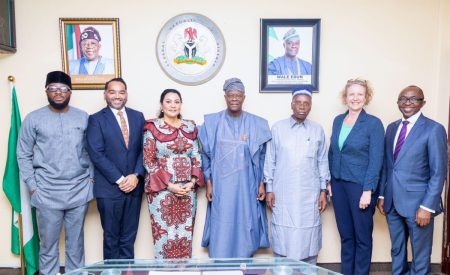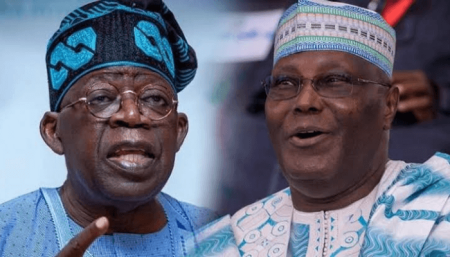 13 June 2016, Sweetcrude, Port Harcourt — Long before oil and gas were discovered in their territories, the ethnic minorities of the Niger Delta Region of Nigeria were unsure of their future in a federation with the three major tribes of Nigeria; worried about the naked competition for dominance by the three major tribes, the people of the Niger Delta evinced a preference, very early in the formative years of the federation, for independence or at least, a semi-federal arrangement (a confederation) whereby they could have and sustain a level of independence required to pursue the simple but peculiar aspirations of their people. To assuage their concerns and to secure a passage from colonialist rule to another form of subjugation, the colonial government constituted the Henry Willinsk Commission, setting for that commission the ostensible agenda of soothing the fears of the ethnic minorities of the Niger Delta and preparing them for the inevitable: a political marriage with the three major tribes that came into the matrix of a political and business arrangement: the Berlin Conference of 1882 and the assignment of an acquired interest by the Royal Niger Company and its chief agent, George Taubman Goldie to the British Crown.
13 June 2016, Sweetcrude, Port Harcourt — Long before oil and gas were discovered in their territories, the ethnic minorities of the Niger Delta Region of Nigeria were unsure of their future in a federation with the three major tribes of Nigeria; worried about the naked competition for dominance by the three major tribes, the people of the Niger Delta evinced a preference, very early in the formative years of the federation, for independence or at least, a semi-federal arrangement (a confederation) whereby they could have and sustain a level of independence required to pursue the simple but peculiar aspirations of their people. To assuage their concerns and to secure a passage from colonialist rule to another form of subjugation, the colonial government constituted the Henry Willinsk Commission, setting for that commission the ostensible agenda of soothing the fears of the ethnic minorities of the Niger Delta and preparing them for the inevitable: a political marriage with the three major tribes that came into the matrix of a political and business arrangement: the Berlin Conference of 1882 and the assignment of an acquired interest by the Royal Niger Company and its chief agent, George Taubman Goldie to the British Crown.
Without any need for a debate on the subject, governance and government practice did not commence in Nigeria. All over the world governments are administered by funds realised from taxes, fines, levies; fees paid for the registration of businesses, concessions, patents, copyrights, techniques, technologies, for the entry and exploitation of the deep seas, air space and airwaves, etc. By this method, the Courts, Corporate Affairs Commission, the Department of Customs and Excise, the Nigerian Communications Commission, Civil Aviation Authorities, Department of Petroleum Resources, NAFDAC and the lot of licensing, concessioning, registration, approving and other agencies act as revenue agents for Project Nigeria, the political enterprise of more than a hundred ethnic nationalities that had existed independently before the meddling intervention of colonial rule. In the civilised world these avenues for income suffice to form and sustain the revenue base or income stream of governments but Nigeria, not pretending to any expressions of or manifestations of civilisation or of imbibing the universal values of governance that had calcified in time and practice, went into the business of profit and loss, acquiring from the most vulnerable region, its private tools of production at the most opportunistic moment, taking, owning and appropriating the region’s own uniqueness, its colours and potentials and peace.
Nigeria became the contradiction which went into business; concessionaire, licensor, regulator, taxer, entering into joint venture partnerships, production sharing contracts, prospector, exploiter, inspector, certifier and all other idiotic roles that made her the laughing stock among the civilised peoples of the world! The greedy managers of Nigeria failed to see the parallels between Brunei, Saudi Arabia and Qatar with the Nigerian situation, a federal state which came into existence under the presumption that all the federating units were viable political entities capable of existing and surviving without the assistance of or aid from any external bodies.
Nigeria became the country where the federating states, local governments and ethnic nationalities queue up month after month for the federal allocation, a revenue ideology wrapped around the fortunes of oil and gas business as conducted by Nigeria Plc; Nigeria became the state that premised its budgets on the predilections, vagaries and fortunes of an industry, yes, a single industry. So that, as it has come to be, the very fortunes of Nigeria, as in the value of its currency, the state of its infrastructure, the moods of its people, its alignments in international fora and others are determined by the health of the industry or more crudely, the price of oil and gas worldwide.
I have no understanding or tolerance for violence but what Nigeria forcibly appropriated from the Niger Delta has not only been its bane in the terms discussed here but also the object, excuse and reason for the interruption of our national life by the people of the Niger Delta who have mastered the art of political puppetry knowing when to pull, loosen, strain and stress the bonds that attach us to the commonwealth of the Niger Delta. In 1966, Isaac Adaka Jasper Boro and his Ijaw Volunteer Force carried out a military campaign against Nigeria over oil mineral rights. On the 23rd of February, 1966 they declared the Niger Delta Republic, seeking the level of control that would assure them independence within their territories. Again, between 1994 and 1995, Kenule Beeson Saro-Wiwa and the Movement for the Survival of the Ogoni People, an ethnic group native to the Niger Delta attracted the attention of the international community with their outcry over the degradation of their environment.
During and since after their protests all the lucrative oil wells in Ogoniland did not produce. For his travails for the emancipation of his people and territory from Nigerian exploitation, he paid with his life. If the Nigerian state thought the death of Saro-Wiwa would dissuade others from challenging Nigeria’s proprietary rights over the oil and gas deposits in the Niger Delta, they were very wrong. Between 2002 and 2007, another Niger Delta group, the Movement for the Emancipation of the Niger Delta carried out an armed campaign against Nigeria and the oil majors. Apart from that group, several others sprung up, demanding the same thing: Resource Control. Several millions of barrels of crude oil lives and valuable equipment were lost in the campaign. It took astute political management to secure a temporary cessation of the violent attacks by militant groups and it was within the efforts at palliating the militant elements that the Nigerian government made an expensive error: the militants were bribed with monthly allowances that have undermined security, industry and stability in the Niger Delta in just about every way that unearned income operates. Dateline 2016, enter the Niger Delta Avengers. Their signature strategy is bombing oil wells, pipelines and oil platforms. In only about three months they have caused more oil spills than occurred in Alaska in TWENTY YEARS!!! Their strategy is the “scorched earth” popularised by the Russian military when attacked by Bonaparte’s forces in 1812. “He who invades my home and property should never enjoy their comfort.”
Would these protests ever stop? I think not for the issue of the appropriation of the mineral rights of the people of the Niger Delta, the mindless rape of their environment and their subjugation to a status rejected by them from the very beginning is an emotive issue that touches on their humanity and survival. Every child in the Niger Delta is raised on poisoned water; their lungs are dark where the lungs of children in Alaska, Tennessee and Texas are pink. In these American states, more oil and gas operations take place than what the Niger Delta has experienced but the difference is that because Alaskans exploit their environment by themselves and for themselves, they apply the best industry standards such that the people and the environment are secured first by deliberate prioritisation. According to the UNEP REPORT on the Niger Delta and Ogoni-land in particular, the Niger Delta environment would not recover its originality even 20 years after the cleanup exercise recommended by the Report!
Now, let us examine the cold statistics. In a period of economic downturn influenced largely by poor oil prices, Nigeria is unable to meet its OPEC production quota; millions of barrels of crude are flowing into the rivers and creeks and farmlands of the Niger Delta as I write. Imagine the damage to the environment and the threat to humanity! Men and women, soldiers and civilians, the infirm and able, natives and strangers are dying in the Niger Delta, all over. Life, living, production, commerce and the traffic of goods and services have all suffered the punctuation of the Avengers’ bombs. Now consider again that ALL these are in the backdrop of an oil and industry that is managed for Nigeria by a monumentally inept and corrupt NNPC. The Petroleum Resources Ministry, the NNPC, its directorates, the Subsidiaries that are in constant reproduction in accordance with the wet dreams of the policy maker of the day, the Refineries, the Group Executive Directors, Group General Managers, Managing Directors and civil servants that are ALL stinking billionaires have constituted drain pipes by which Nigeria famously suffers from one level of operational loss to another. Nobody is fooled; Nigeria’s oil production venture is operated at a loss from one fiscal year to another.
What has baffled me is that year after year of losses occasioned by corruption, ineptitude, bureaucracy, negligence, theft and sabotage, the Nigerian state has NOT seen the wisdom in restricting itself to Regulator, Inspector, the Certification of Standards, Legislating Industry Guidelines, Enforcer of Operational Rules and Industry Regulations, Taxation, Licensing Operators, De-Listing Defaulters in the Industry and a motley of other roles that are much more lucrative and beneficial than producing oil and gas operations. Oil and gas business attracts 50% tax in some countries; the South African Government under Pieter Botha boasted that it had the capacity to manage its affairs with earnings from regulating, taxing, licensing, fining and granting concessions in a single industry: diamond mining. Last year the Nigerian government fined a telecoms company billions for non-compliance with government regulations. The Nigerian government could, in my humble view, make more money fining IOCs for flared gas alone than it has, pursuing some ghost investments rolled out by criminal operatives in the system for their personal gain. The beauty and advantage in the Nigerian government adopting the international norm is that apart from wages for personnel which incidentally would be produced by the personnel, the government does not need to source funds for investments; it can operate on a lean investment folio and still secure huge returns. The government would not suffer the indignity of production sharing contracts or joint venture partnerships.
The Nigerian government need not fear the loss of control or influence over the oil and gas industry. All over the world, governments, citing strategic reasons, national security, the integrity of the environment or simple market sanity and stabilisation, usually determine the volume of crude (or other minerals) to be extracted, locations to be exploited and those to be reserved. The prudent exercise of these powers can secure concessions from IOCs, producing states and communities. The biggest gains foreseeable where government plays its traditional role, leaving the exploration and exploitation of crude oil for IOCs working with owner communities and individuals, are social security, healthy competition for prudent management of oil and gas assets, a safe environment secured by host communities, government inspectors, government fines and an equitable society where the rules of justice apply to all equally.



